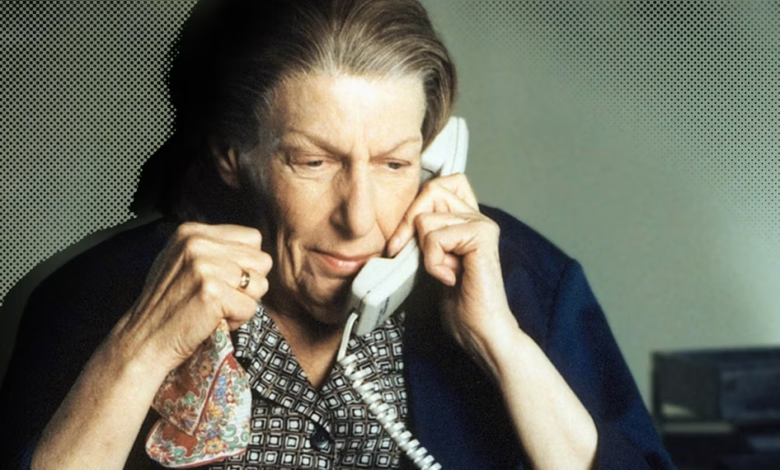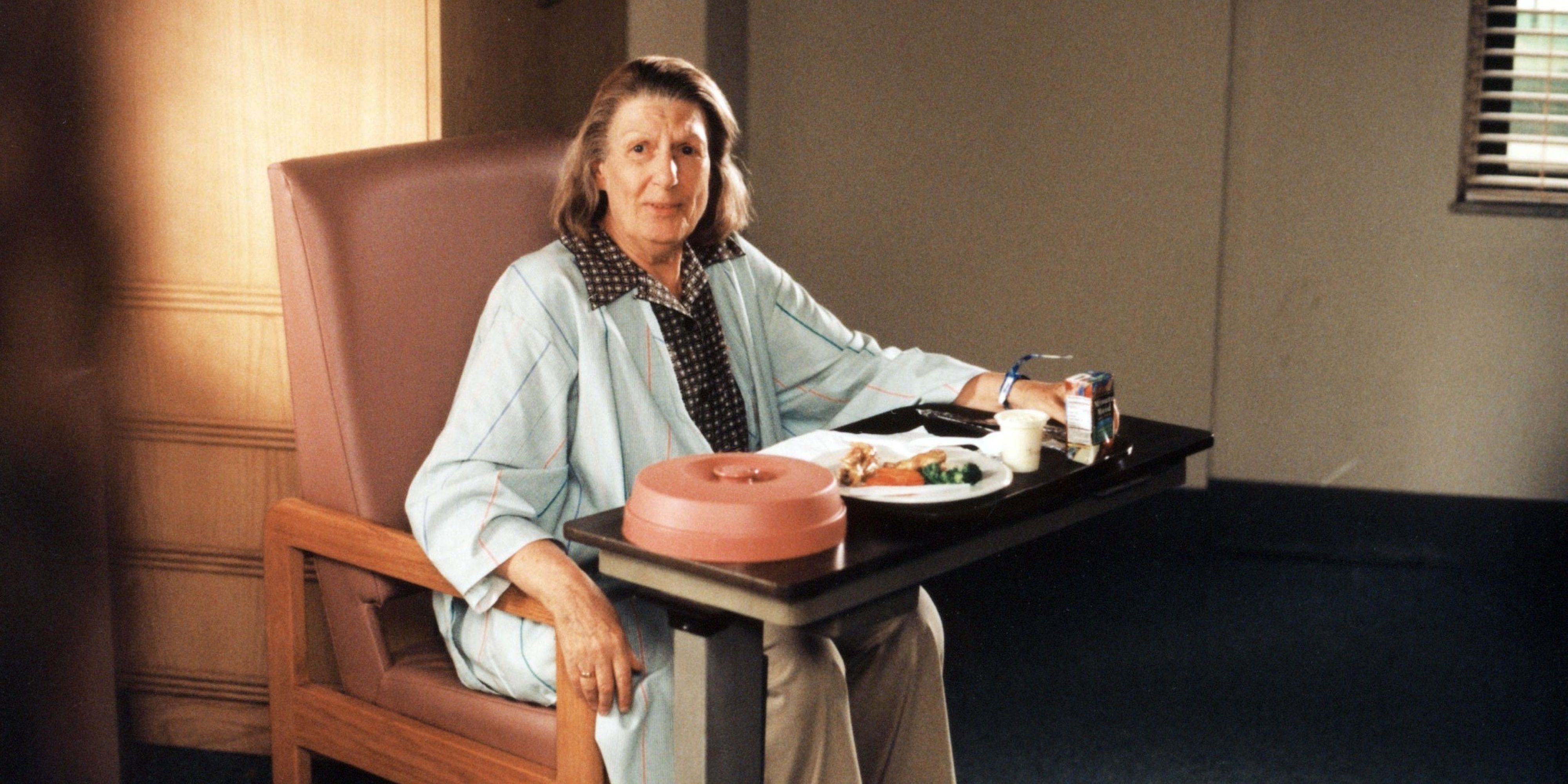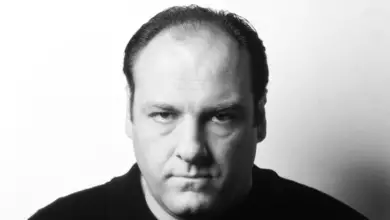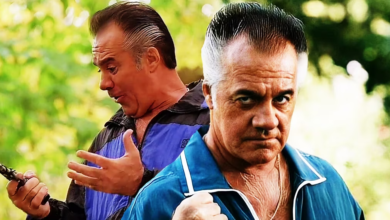How The Sopranos Pilot Hinted Tony’s Mom Had Dementia
The Sopranos pilot hinted that Tony's mother, Livia, had dementia; here's how the first episode of the crime drama set up a major series arc.

The HBO crime drama series The Sopranos hinted in its very first episode that Livia, the mother of its focal mobster Tony, had dementia, setting up a major series arc. The Sopranos, season 1 saw Tony seeking therapy to help him alleviate his panic attacks, and quickly, Tony’s hatred for his own mother was established as a major source of his emotional distress. While the mob boss’ troubles with his mother run deep — as explored throughout the show — a key source of his stress comes from his mother’s increasingly worrying health issues and need for elder care.
The Sopranos characterized Tony and Livia’s relationship as incredibly toxic. The contentious relationship between Livia and Tony in The Sopranos was a major source of narrative conflict throughout the HBO drama series, even after Tony’s mom died in season 3. Livia continued to haunt Tony until the end of the series, as an unresolved source of turmoil for the crime boss — an aspect of his life he was unable to make peace with.
The Sopranos premiere introduced Livia as an incredibly difficult woman; living alone, she was immediately established as unpleasant, demanding, and difficult. Shortly into the series, Livia was moved into a retirement community as she was unable to take care of herself anymore, and by the season 1 finale, the family begins to suspect that she has Alzheimer’s. Before she can be officially assessed and diagnosed, however, Livia suffers a stroke, and season 2 sees her recovering, only to succumb to a second, fatal, stroke between season 2 and 3. The actress who played Livia, Nancy Marchand, died in real life, which prematurely ended the character’s overall story — but had it continued, it likely would have been similar to Junior’s dementia storyline in The Sopranos final seasons.
How The Sopranos Set Up Livia’s Dementia
The Sopranos premiere subtly hinted that Livia was cognitively impaired even before her stroke (which Tony believes she somehow forced or exaggerated). In the pilot, Tony approaches his mother’s house to bring her a new CD player. When he knocks on the door, she doesn’t recognize his voice, feebly asking “Anthony?” after he calls her “Ma” repeatedly. She continues to act confused, stating “someone called last night,” but she couldn’t recall who, then explains she doesn’t answer the phone after dark. Tony comments on the lack of logic to her behavior, as well as the stagnant air in the house, but doesn’t recognize the warning signs of dementia; his mother’s disheveled appearance, the fact that she’s improperly buttoned her nightgown, and her inability to recognize her son’s voice, all hint that she’s in the early stages of, mostly likely, Alzheimer’s. Tony’s later comments that she has trouble operating her phone, and Anthony Soprano Jr.’s comment that she was crying while speaking to him, continue the pattern.
The Sopranos avoids Tony having to face an Alzheimer’s diagnosis for his mother, and as a result, the audience is never clear on to what extent Livia is responsible for her actions. However, Livia does demonstrate at least mild cognitive impairment, particularly in the next episode. In The Sopranos, season 1, episode 2, her forgetfulness causes a house fire, as well as a car accident in which she drives into her friend. Livia’s response to these situations could be interpreted as confusion — in both examples, she is distracted, then appears to not understand what is happening around her. These events are serious enough that a decision is made to hire a caretaker, and then what that doesn’t work out, move her into a retirement facility, largely against her will. The final episodes of season 1 see Livia’s forgetfulness reach new levels, with her wandering around at night confused and seeming unable to recognize those around her; yet, several characters suspect that this might all be an act.
The Sopranos implies that, to an extent, Tony is being willfully ignorant of his mother’s condition in those early episodes. Tony tells his therapist Dr. Melfi that his mother is a sharp, healthy woman, and Melfi appears to believe him, indicating as much in their sessions (and commenting on the power his mother held over him). Tony comments on how his mother is “strong” as evinced by her driving friends around; however, in the same episode, Livia gets confused while behind the wheel — proof that she should not be operating a vehicle. This begs the question: is Tony projecting? Or is he simply ignoring truths that would be inconvenient to him — after all, his mother having independence (like her being able to drive) means she’s not dependent on him.
Why The Sopranos Finished Livia’s Story Early
Season 2 saw Livia leverage her poor health following the stroke to seek pity from those around her (and to escape responsibility for her role in the attempt on Tony’s life). The storyline was cut short though, due to the actress’ death. Although the season 1 finale had doctors commenting on her possibly having Alzheimer’s disease, The Sopranos never fully explained the decline of Livia’s mental state — which, as Dr. Melfi pointed out, conveniently occurred immediately after the failed attempt on Tony’s life. The timing of the significant events is suspicious, but it also doesn’t account for the earlier signs, like her driving incident. Conversely though, Livia demonstrates a level of manipulation that seems unlikely possible if she was as impaired as she was letting on: she pretends to be confused when talking to Artie, but then plants the seeds of anger that she knows will lead him to go after Tony.
Her cognitive impairment was hinted at several times before, particularly in the storylines involving the relationship between Tony and Junior, and her role in having instigated, and then escalated, the conflict between them. The Sopranos was vague about Livia’s motivation: while she certainly told conflicting accounts of events to both parties, the show never established whether this was a side effect of her declining mental state or if she was being intentionally manipulative and deceitful, which was established as normal behavior from her. When Marchand died, Livia had to be killed off before these lingering questions could be answered.
It’s possible that the intended story arc for Livia was instead given to Junior Soprano, Tony’s uncle and leader of the DiMeo crime family (for a time). In the early episodes of The Sopranos, Junior appears sharp — if a tad stubborn and prideful — and shows no obvious signs of cognitive impairment; however, he too suffers a series of strokes later in the series, and by The Sopranos finale, his dementia has progressed to the point of him being unable to recognize his family members. Junior and Tony’s relationship made for compelling narrative arcs across the HBO crime drama, and a key component of those storylines was Junior’s declining health; yet, one can’t help but wonder what might have been if Livia’s story had been able to continue. If Livia had been the one to waste away in a state-run institution, unable to recognize her own son, it may have made for a more meaningful, or even satisfying, end to the Tony/Livia story.







